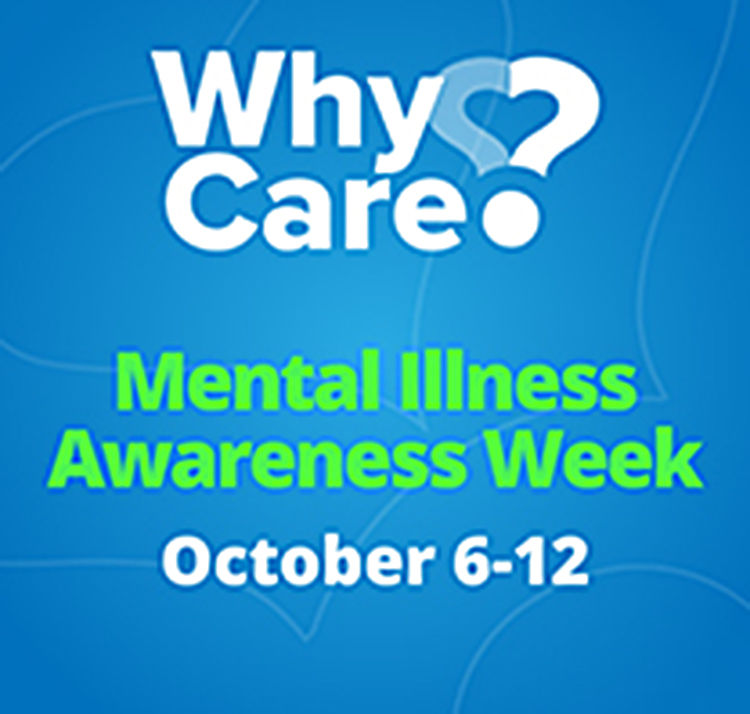MENTAL HEALTH WEEK: Official says a growing number of residents affected
Published 11:00 am Wednesday, October 9, 2019

- Mental health awareness
This week is Mental Health Awareness Week, and state and regional officials want to stress the importance of awareness and treatment options.
“Mental health is just as important as physical health and deserves care and attention,” said a press release from the Alabama Department of Mental Health.
This week, the department is sharing important information to help decrease stigma and share resources for those in need. On Thursday, mental health officials will celebrate World Mental Health Day. This year’s focus is on suicide prevention.
“ADMH and partners ask that you take “40 Seconds of Action” to help us improve awareness of the significance of suicide as a global health problem, improve knowledge of what can be done to prevent suicide, reduce stigma and let people who are struggling know that they are not alone,” the release said. “This is an opportunity to show you care. ”
Daily facts and information on mental health awareness will also be posted to the department’s Facebook, Twitter and Instagram accounts.
Some of those facts include:
• 1 in 5 United States adults experience mental illness each year ;
• 1 in 25 U.S. adults experience serious mental illness each year ;
• 1 in 6 U.S. youth ages 6-17 experience a mental health disorder each year; and
• Suicide is the second-leading cause of death among people ages 10-34.
Local importance
Bill Giguere, development officer for the Mental Health Center of North Central Alabama, there are several reasons why Mental Health Awareness Week should be important to Limestone Countians. He explained more people are affected by mental health than anyone might think.
“This past year alone, the Mental Health Center provided life-changing psychiatric and mental health services for 1,100 children and adults in Limestone County though its clinic, the Athens-Limestone Counseling Center,” he said.
According to the U.S. Census Bureau, Limestone County has a booming population of more than 96,000 people. Adults make up 76% of this number. Citing the aforementioned statistics from the ADPH, Giguere said 13,000 adults in Limestone County are experiencing a mental health illness, 3,000 of which are experiencing a severe mental health illness.
If 24% of Limestone’s population are minors (17,280), and 1 in 6 children experience a mental health disorder, Giguere said that would mean 2,900 kids are experiencing a mental health disorder.
“This means there are approximately almost 16,000 children and adults in Limestone County experiencing a mental health disorder right now,” he said.
Information and awareness
Giguere said the MHCNCA has “great working relationships” with community, governmental and service agencies in Limestone County, but he said there need to be more conversations about mental illness.
“Talking about mental illness can help those struggling realize they are not alone on their way to recovery, and they are not the only ones who feel the way they do,” he said. “For those who are not affected by mental illness firsthand, the conversation about mental illness can help inform them about risk factors, symptoms, treatment and prevention methods, which will allow them to then help the people around them. This can make for a society that is more informed and accepting about mental illness.”
Such conversations may also help eliminate the stigma surrounding mental illness. Giguere explained the stigma causes people to feel isolated, stereotyped, shameful or discriminated against, all of which can hinder recovery.
Other impacts
It’s not just families and counseling centers touched by mental illness — law enforcement agencies also feel the effects.
Limestone County Sheriff’s Office deputy and public information officer Stephen Young said it’s difficult to quantify the effects it has on Sheriff’s Office resources, but he describes it as a “massive problem” that doesn’t show signs of improvement in the near future.
He said deputies and corrections officers deal with mentally ill people on a daily basis.
Often, people with even the most severe mental problems can function normally with proper medication, but there is no way to ensure they continue to take their medication once they are released from jail or a mental health facility,” he said. “Many times they end up returning to jail after failing to continue taking their medication, and the cycle continues. There is some overlap between illegal drug use and mental health as well, but its extent is unknown.”
Treatment
No matter what someone may be experiencing, Giguere said help is available. He added those with mental illness are more likely to develop other chronic medical conditions and die earlier than others, usually as a result of treatable conditions.
“Seeking out treatment can be the first step in improving the rest of life,” he said. “The more people openly discuss mental illness, the easier it is to do so. One conversation can start a chain reaction of conversation.”
Those in need of services should call 256-355-5904 or toll-free at 800-365-6008. Those seeking information may also visit www.mhcnca.org to learn more.
Residents can also call 211 about services offered statewide.





